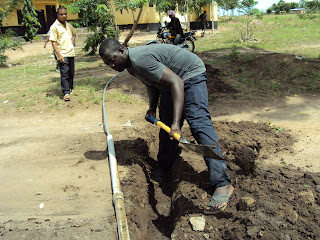As a result, I’m now on the mailing lists of several pertinent organizations that sponsor seminars and have meetings in the Boston area, where I live. One is New England International Donors [NEID], which is an affinity group for donors, grant makers, and social investors who give internationally. [See http://www.neidonors.org/ .] I attend NEID events to learn more about what others are doing to alleviate poverty and its effects around the globe, and then share that information with World Class.
The most recent discussion, “Collaborative Challenges: Confronting Poverty”, was presented by Jonathan Lewis. Jonathan is the founder/CEO of the Opportunity Collaboration and founder/Chair of MicroCredit Enterprises. You can learn more about him at http://www.ionpoverty.com/JonathanLewis_Bio.pdf and by reading his posts on the Huffington Post or here: http://www.socialedge.org/blogs/i-on-poverty .
Jonathan started by reminding us of the difference between our market in the U.S. and those in poverty-stricken countries:
OUR MARKET:
Government sets policies for transparency.
There are private and public goods and services.
Survival of the fittest is driven by creativity.
Capital is scarce, expensive, and tightly controlled.
Only the private sector is a provider.
Only one economic opportunity exists.
He then presented his premise that it’s time for philanthropists to develop a sense of urgency and practical purpose about ending global poverty – and that organizational collaboration is an important approach. To be effective:
-We should be informed and possess accurate and pertinent statistics on global poverty and about our own area of focus.
-Because the causes of poverty are complex [as World Class has discovered in our work in Ghana], multi-disciplinary solutions are required to end it, so collaboration is required. We should think about the philanthropic community of which we’re a part and consider whether there might be productive alliances we should/could form.
-To know if we’re doing the right things and making progress, we need clear and measurable standards of performance.
Jonathan has developed a list of his rules for organizations engaged in efforts to alleviate poverty:
1. Check your ego at the door. This isn’t about you. It’s about delivering results for the communities you serve.
2. Partner with local programs and leaders -- work with people who know more than you do.
3. Support long-term solutions. You can’t finance your way to economic justice. The poor must be empowered. You’re upending the status quo, which takes time.
4. Results, not ideologies, count. A focus on outcomes is more important that a focus on methods.
And then he jumped into what he termed “the deafening debate” about scale. Seemingly contradicting his point about the importance of collaboration and alliances, even advising us not to contemplate starting yet another nonprofit to address global poverty, he said, “It’s not about scale, it’s about impact” – a paradox I can embrace.
Here are my personal thoughts on the topic:
While I understand that there are $100 billion problems in the world that won’t be solved by dispersed small donations to millions of small organizations *, there can be real value in contributing to efforts of the size and structure of World Class. For me, the short and visible distance between my bank account and the flowing of fresh water in Doblo Gonno makes the decision to give via this small giving circle feel just right. I find added benefit in working in concert with classmates to provide a woman named Dianah Animah with a loan to grow her second-hand clothing business; and to receive, for my birthday, the gifts of donations from friends and family to fund the building of latrines in a place called Doblo Gonno.
So, while I appreciate the views of Jonathan and others – and can even advocate for those views in the absence of sufficient flow of public money to end poverty and other big problems – I’m satisfied with the opportunity that I find in a giving circle membership; and as long as it continues to produce measurable outcomes, I see an important place for World Class in the front lines of the fight.
* See Billions of Drops in Millions of Buckets: Why Philanthropy Doesn’t Advance Social Progress by Steve Goldberg for more on this proposition.
Additional note: If you want to do a deep dive into the issues surrounding global poverty, see http://www.unmillenniumproject.org/documents/tfoneinterim.pdf.
























